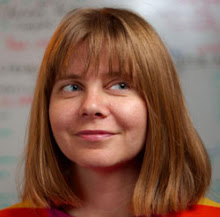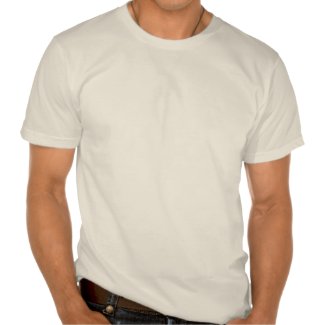 Angel was the first film Ernst Lubitsch directed under the production code. And it shows. You can see Lubitsch struggling against the Code. His usual "touch," that light unobtrusive slyly sexual humor that his best movies exhibit, is a bit off somehow. To add to Angel's troubles, the film was cut down by twenty minutes to please the studio. That also shows. There are chunks of explanatory dialog missing. I was confused about the opening scene of the film, expecting it to be explained in the end and it simply wasn't. Worse, you can see moments where Lubitsch had given the actors space to actually react to things and those are pared down in the most noticeable way. In one scene Herbert Marshall comes to realize that his wife is the woman, "Angel" that his buddy Melvyn Douglas has been nattering on about for two reels. The film fades to black right in the middle of Marshall's reaction. His face is still changing. It's most disconcerting and I can only blame Paramount for this incompetence because I can't see a genius like Lubitsch actually pulling such a hack move.
Angel was the first film Ernst Lubitsch directed under the production code. And it shows. You can see Lubitsch struggling against the Code. His usual "touch," that light unobtrusive slyly sexual humor that his best movies exhibit, is a bit off somehow. To add to Angel's troubles, the film was cut down by twenty minutes to please the studio. That also shows. There are chunks of explanatory dialog missing. I was confused about the opening scene of the film, expecting it to be explained in the end and it simply wasn't. Worse, you can see moments where Lubitsch had given the actors space to actually react to things and those are pared down in the most noticeable way. In one scene Herbert Marshall comes to realize that his wife is the woman, "Angel" that his buddy Melvyn Douglas has been nattering on about for two reels. The film fades to black right in the middle of Marshall's reaction. His face is still changing. It's most disconcerting and I can only blame Paramount for this incompetence because I can't see a genius like Lubitsch actually pulling such a hack move.Dietrich plays Maria Barker, wife of an important British diplomat, Sir Frederick Barker (Herbert Marshall) whose time is consumed by attempting to make peace in the Pre-World War II era. Through a slight case of mistaken identity she meets Tony Halton (Melvyn Douglas) in the Grand Duchess' Salon, which is far as I can tell is a cross between a single's bar and a brothel. The Grand Duchess, ably portrayed by Laura Hope Crewes is part time agony aunt to Maria with whom she has some mysterious, never quite explained connection. Halton shows up on the recommendation of a never-seen Captain Butler (remember this is two years BEFORE Gone With The Wind, I think the name was merely coincidence) looking for a good time. Maria offers to show him the Louvre, the Eiffel Tower and Notre Dame, though that's not what he had in mind. Those reading along might think some of this sounds remarkably similar to Ninotchka, made by Lubitsch also with Douglas and a fake Russian Emigre, Greta Garbo a few years later. But Angel is no Ninotchka and it's a bit of a puzzle as to why. Dietrich and Douglas' early scenes together, so critical to the believability of the rest of the film, are leaden where they should be light and ponderous when they should be breezy. I like both these actors separately, but together in these early scenes, I can't wait for the movie to well, move along.
I literally said aloud, "oh thank God!" when I saw Edward Everett Horton's face in the next scenes. Now, we are actually going to have a comedy, I said. Well, almost. Horton has a small part that he does his best with as Graham, Barker's loyal manservant who judges the various European powers by the manners of their representatives at the League of Nations. He holds them all up to be lacking compared to those of his master, Sir Frederick who is smooth, easy-going and impecable in every way a butler could wish for. Unfortunately he's not so impeccable in every way a wife could wish for. After a wonderful bit of Lubitsch nonsense involving mixed up sleeping arrangements in the bedroom suite (the highlight of the movie for me), we see that Maria and Frederick's relationship is more or less platonic. I love Herbert Marshall and all, but really man, do you need a B12 shot or something? Can I get you a plate of oysters? This is Marlene Dietrich telling you about a dream she had in which you beat her and she quite liked it (Oh Lubitsch and his references to S&M are one of my favorite little quirks) and you run off to answer a telegram from the Yugoslavians. Sigh.
At a scene quite reminiscent of Notorious, Maria spots Halton at races through a pair of binoculars and begs to go home with a headache. Speaking of Hitchcock, the whole pre-World War II vibe is very Foriegn Correspondent-ish, right down to the fact that Maria and Sir Frederick have the exact same enormous Great Dane as Marhsall's character does in the later Hitchcock film. Wierd. Anywho, inevitably Halton and Sir Frederick meet, discover they once shared the affections of the same Parisian woman during the Great War and become fast friends. When Douglas and Dietrich are reunited, the sparks finally fly and both actors are really wonderful at showing just enough emotion to let the audience know what they are thinking. The way Douglas says "Hello, Angel" when they are finally alone together is enough to make me almost root for him. And that's saying a lot because y'all know I'm bananas for Herbie. Marshall and Douglas seem to enjoy being with each other more than they do Dietrich, which makes me wonder if Lubtisch wasn't just trying to remake Design for Living with the promise of "no sex" actually coming true. Marshall and Douglas' scenes together all slap you on the back old man, make you a gin and tonic and light your cigarette. I could just about watch 90 minutes of this camaraderie, but if it Lubitsch had allowed it to go on a second longer I would be convinced that it was the two guys who were lovers after all.
I wouldn't discount any Ernest Lubitsch film entirely. Though it's been difficult to find in the U.S. , some kind soul has uploaded it to Youtube. It is worth watching to appreciate the enormous tension wrought by Lubitsch in this comedy that wants to be a thriller. It wants to be Notorious. How I ache for Marshall to come out at the end and admit he's a fat-headed guy full of pain. Actually, almost any movie would be better with that as the ending. Dietrich keeps hinting that she could be a spy when she first meets Douglas. I kept hoping that would be the case. Her marriage would be revealed as a sham so she could run off with Halton. Graham and Sir Frederick could live happily ever after in a Jeeves and Wooster rip-off drawing room comedy.












